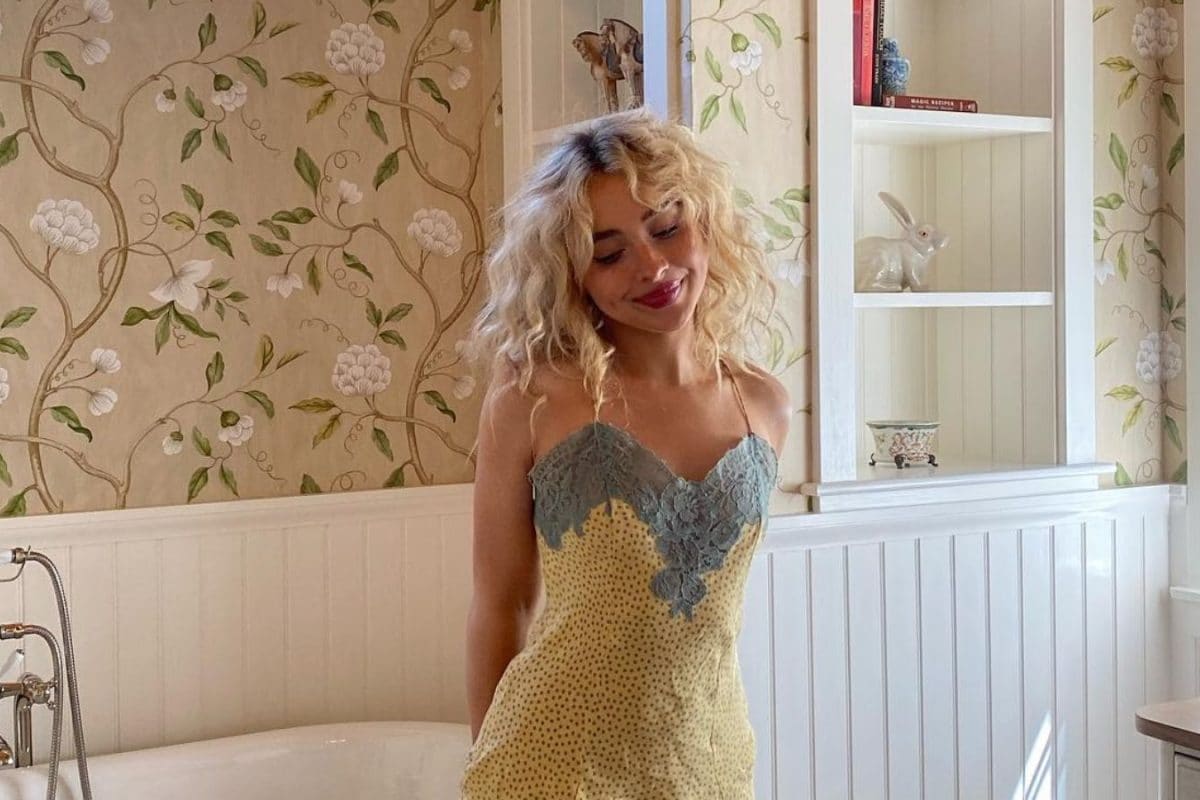

Sabrina Carpenter's upcoming album, "Man's Best Friend," slated for release on August 29, 2025, has ignited a fierce debate online, primarily due to its provocative cover art. The image features the 26-year-old singer kneeling in a black mini dress and high heels, with an unidentified man in a suit gripping her hair. This visual has triggered a wave of criticism, with many accusing Carpenter of promoting misogyny and catering to the "male gaze."
Critics argue that the album cover perpetuates harmful stereotypes by depicting a woman in a submissive position, likening her to a pet. Some women's rights groups and domestic abuse charities have voiced concerns that the imagery evokes "tired tropes that reduce women to pets, props, and possessions and promote an element of violence and control." This sentiment has been echoed across social media platforms, with users expressing disgust and disappointment. Some critics on Carpenter's Instagram page wrote, "I love Sabrina, but this cover doesn't sit right with me; you can express sexuality without objectification, and the hair grab just reeks of patriarchy and male control. This kind of exploitation sets women back decades." Others have described the artwork as "triggering" and "disgusting."
However, the controversy has also sparked a counter-movement of fans and commentators who defend Carpenter's artistic choices. Supporters argue that the cover is a deliberate attempt at satire, meant to critique traditional gender roles and power dynamics. They suggest that the image should be viewed in the context of the album's themes, particularly Carpenter's recently released single, "Manchild," which takes aim at immature masculinity. Some fans have pointed out the irony of accusing Carpenter of catering to the male gaze when her sexually explicit content is already widely consumed and popularized. One fan wrote on X, "The way people can't comprehend that an album called 'Man's Best Friend' with cover art of a man treating a woman like a dog (b*tch), and a lead song titled 'Manchild' is clearly ironic/criticizing those things."
Defenders of the cover also emphasize Carpenter's right to express her sexuality and artistic vision without being subjected to censorship or accusations of setting back feminism. They argue that the negative response is rooted in societal expectations that women should conform to "appropriate" displays of femininity, which often discourage them from taking ownership of their sexuality or being active agents in their own sexual lives. Elouise Eftos, a comedian and actor, described public criticism as "dramatic and over the top," saying that Carpenter has the right to depict herself as she pleases and is not responsible for curating a family-friendly image.
In an interview with Rolling Stone, Carpenter addressed the backlash, stating, "It's always so funny to me when people complain. They're like, 'All she does is sing about this.' But those are the songs that you've made popular. Clearly you love sex. You're obsessed with it." She also alluded to the double standards faced by female artists, noting that while her overt innuendos are often criticized, they are also the moments that go viral and generate discussion.
Dr. Emma Phillips, an assistant professor at the University of Canberra, argues that the controversy reflects a broader cultural shift in which women are increasingly taking ownership of traditionally misogynistic imagery. She suggests that Carpenter is engaging in irony and satire and that viewers should look beyond the surface-level interpretation of the image.
The "Man's Best Friend" album cover controversy highlights ongoing tensions surrounding sexuality, power, and representation in pop culture. While critics express concerns about the potential for the image to perpetuate harmful stereotypes, supporters defend Carpenter's artistic freedom and argue that the cover is a deliberate commentary on societal norms. As the debate continues, it remains to be seen how the controversy will impact the album's reception and Carpenter's career.